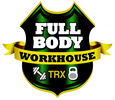We’re in January now and it’s pre-season for most GAA heads. A question I get asked quite often is should nutrition be different pre-season and during season. The answer is yes. You should not be consuming the same calories in pre-season as you do during championship.
Think about it though. Preseason is usually gym based with maybe one pitch session so activity levels are not as high. Compare that to full on championship mode, you may be on the pitch 3 times a week with one gym session. And this only takes one sport into consideration. You may have multiple sports.
If activity levels increase so too should calories and vice versa. If we are in a period of lowered activity, calories should therefore be lower. Overall calories are determined by gender, weight, activity level and goals.
Macronutrient requirements will also be different. Protein requirements will be high in both cases as the need for recovery will be high i.e post gym session or post-match both require high protein. Protein targets are usually 1.8-2.2g per kg BW. We get protein from meat, fish, eggs, beans, peas, nuts and seeds.
Fats are also important for recovery and to reduce inflammation. These should be approximately 20% of our overall calorie intake. Healthy fats like polyunsaturated oils, nuts, seeds, dark chocolate and oily fish are an essential part of a balanced diet.
Carbohydrate is our main energy source during sport. Pre season however, requires less carbohydrate intake. We are focused on more short bursts of energy like Gym work or sprints which use a different energy system to matches. We don’t need to consume carbohydrate with every meal during pre-season and while our calorie requirements are also lower here might be a good place to start. We could substitute our complex carbohydrate rice with a lower calorie cauliflower rice or breakfast could focus more on a larger omelette with extra veggies rather than 2 slices of bread? These are just options of how to reduce calories but keep bulk and not feel like you are depriving yourself.
It is important to understand that these are two different periods of an athlete’s schedule. Just like your training is cycled, your diet too should be cycled. I will continue this topic when we come into season 😊
Think about it though. Preseason is usually gym based with maybe one pitch session so activity levels are not as high. Compare that to full on championship mode, you may be on the pitch 3 times a week with one gym session. And this only takes one sport into consideration. You may have multiple sports.
If activity levels increase so too should calories and vice versa. If we are in a period of lowered activity, calories should therefore be lower. Overall calories are determined by gender, weight, activity level and goals.
Macronutrient requirements will also be different. Protein requirements will be high in both cases as the need for recovery will be high i.e post gym session or post-match both require high protein. Protein targets are usually 1.8-2.2g per kg BW. We get protein from meat, fish, eggs, beans, peas, nuts and seeds.
Fats are also important for recovery and to reduce inflammation. These should be approximately 20% of our overall calorie intake. Healthy fats like polyunsaturated oils, nuts, seeds, dark chocolate and oily fish are an essential part of a balanced diet.
Carbohydrate is our main energy source during sport. Pre season however, requires less carbohydrate intake. We are focused on more short bursts of energy like Gym work or sprints which use a different energy system to matches. We don’t need to consume carbohydrate with every meal during pre-season and while our calorie requirements are also lower here might be a good place to start. We could substitute our complex carbohydrate rice with a lower calorie cauliflower rice or breakfast could focus more on a larger omelette with extra veggies rather than 2 slices of bread? These are just options of how to reduce calories but keep bulk and not feel like you are depriving yourself.
It is important to understand that these are two different periods of an athlete’s schedule. Just like your training is cycled, your diet too should be cycled. I will continue this topic when we come into season 😊

 RSS Feed
RSS Feed